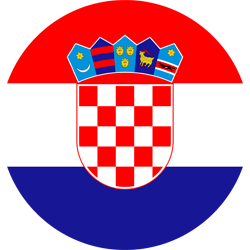Trauma Treatment in Dubai
Psychological trauma can occur after someone experiences an extremely stressful event. This results in an overwhelming level of stress that surpasses a person's ability to deal with the emotions involved in that experience. A person may develop trauma as a response to any event they subjectively find physically or emotionally harmful. Around 70% of adults report experiencing at least one traumatic event in their life. Women tend to experience more traumatic events in their lifetime than men.
Our mental health professionals are here to help you, whether you need to heal or want to thrive.
Get in touch to find out how we can help you. Contact us however you feel most comfortable, for example Whatsapp message us, or feel free to call us on +971 56 895 2347. You can also email or simply send us a query via our online form. Instagram message, Facebook chat… whatever works best for you!
Our goal is to make you comfortable.
People may experience various forms of trauma in various ways; not everyone that goes through a stressful experience will develop trauma, and people can have symptoms for varying lengths of time. Individuals can also have different reactions to the same traumatic events; two people who have gone through the same event can have two completely different responses.
Some examples of traumatic events are neglect, abuse, violence, losing a loved one, a disaster, an accident, and sexual assault.
There are different forms of trauma. Some of these include:
Acute trauma: Resulting from a single traumatic event
Chronic trauma: Resulting from repeated and continuous exposure to traumatic events (e.g., bullying, domestic violence, childhood abuse)
Complex trauma: Resulting from exposure to multiple traumatic events
Secondary/Vicarious trauma: Resulting from having a close relationship with someone who has been through a traumatic experience. A second-hand trauma developed by those caring for trauma victims. The symptoms of this are often similar to those caused by PTSD.
There are also several types of trauma disorders, all caused due to an underlying traumatic event. The type of traumatic experience impacts what percentage of people will develop a certain type of traumatic disorder. The DSM lists the following within the ‘Trauma- and Stressor-Related Disorders’ chapter:
Post-Traumatic Stress Disorder (PTSD)
Post-Traumatic Stress Disorder (PTSD) causes persistent flashbacks, nightmares, and fearful memories of the traumatic experience an individual went through. It also causes one to avoid anything that reminds them of the trauma. Although over half of the population generally reports experiencing one or more traumatic less than a fifth develop PTSD.
Symptoms of PTSD can escalate to more serious mental health issues such as anxiety and panic attacks, depression, suicidal thoughts, substance abuse, and feelings of isolation. It can also affect functioning by preventing an individual from completing daily tasks.
PTSD symptoms are grouped into four clusters:
Intrusions: Distressing and recurring memories, nightmares, and flashbacks
Avoidance: Avoiding situations or people that trigger the traumatic memory, and avoiding thinking and talking about it
Negative thoughts or mood: Symptoms such as negative thoughts about the world and themselves, hopelessness, lack of interest or positive emotions, emotional numbness, and withdrawal from friends and family
Arousal: Changes in reactions such as being startled or scared easily, difficulty sleeping or concentrating, self-destructiveness, hypervigilance (being on guard), angry and aggressive outbursts
Other symptoms include sleep problems, head- and stomach-aches, and issues in school. These symptoms must last for more than one month and must cause interference in different areas of someone's life for diagnosis. They must also not be due to any other condition. PTSD symptoms are far more common in women than men.
For children below 6 years, symptoms may also include nightmares of the traumatic event and re-enacting the traumatic event through play.
Acute Stress Disorder (ASD)
Acute Stress Disorder (ASD) causes symptoms similar to those caused by PTSD, but they occur within a month of exposure to the traumatic event. The reaction to trauma in ASD is more sudden but briefer than in PTSD (a few days to a month). The right treatment can reduce the risk of ASD developing into PTSD. While the diagnosis of PTSD must include at least one symptom from each cluster, while ASD can include any combination.
Adjustment Disorders (ADs) cause excessive and unhealthy reactions to stressful or difficult experiences (e.g., a major life change or a loss). These reactions are displayed through emotional and behavioural problems due to a poor ability to cope with stresses. The different types of ADs are characterized by anxiety, depression, and inappropriate behaviours.
Symptoms include being extremely sad and hopeless, sleep issues, loss of appetite, feeling overwhelmed, withdrawal, and avoiding responsibility. For a diagnosis, the symptoms must be persistent and severely impacting one or more areas of a person's life and functioning. These must be beyond a ‘normal’ and expected stress response.
Reactive Attachment Disorder (RAD)
Reactive Attachment Disorder (RAD) is less common but is seen in children who are unable to develop a healthy attachment to their caregiver. This happens when a child’s needs are neglected which is a type of traumatic experience. Children with RAD display limited emotional responses and a lack of remorse, even where emotion is expected. They tend to be withdrawn, aloof, unengaged, sad, and afraid.
Disinhibited Social Engagement Disorder (DSED)
Disinhibited Social Engagement Disorder (DSED) is similar to RAD as it is also an attachment disorder caused by neglect or traumatization. The symptoms of DESD are less severe than RAD, however, it causes difficulty for a child to develop healthy relationships and engage in appropriate ways. Children with DESD are overly open and eager to interact with strangers; they may even leave their caregiver and go off with a stranger instead.
Other Specified and Unspecified Trauma- and Stressor-Related Disorders
Any cases that do not meet the criteria in the above categories are diagnosed in this one. This happens if a person has some but not all of the symptoms for a specific condition or if their emotional and behavioural reactions do not fit in any other category.
Memories associated with trauma are explicit, consistent, and hard to forget. An individual’s response to a traumatic event can include intense fear and helplessness. In children, this response is typically expressed as disorganization, agitative/irritable behaviour, and short-temperedness.
Overall Symptoms
The symptoms of trauma can range in severity. Factors that determine how a traumatic event impacts an individual include:
The presence of other mental health conditions
The individual's background and their approach to handling emotions
Previous exposure to traumatic events
The type and characteristics of the event(s)
Trauma can cause a range of physical and emotional symptoms. Different types of trauma disorders cause different reactions, however overall, they include many similar symptoms such as:
Emotional symptoms of trauma:
Emotions such as anger, fear, sadness, confusion, guilt, shame, and shock
Denial
Overwhelmingness
Emotional numbness
Hopelessness/Helplessness
Depression and anxiety
Irritability
Difficulty concentrating
Emotional and violent outbursts
Difficulty processing/coping with their experiences, emotions, and feelings
Withdrawal from others
Loss of interest
Flashbacks/intrusive thoughts/nightmares of the traumatic event
Avoidance of the stressor/trauma
Suicidal thoughts and behaviours
Physical symptoms of trauma
Digestive issues
Fatigue
Headaches
Stomach-aches
Racing heart
Lack of appetite, resulting in weight loss
Sweatiness
Restlessness/Unease/Being ‘on edge’
Hyperarousal (constant alertness)
Sleep issues
Trauma can have long-term effects on a person’s well-being. Individuals may develop other mental health issues, such as depression, anxiety, and substance abuse problems. Trauma can also increase the risk of suicide. Psychological trauma and the additional mental health disorders it may cause can be treated with therapy.
Risk Factors
Many risk factors can make certain individuals more susceptible to the symptoms and related effects of trauma. Factors that can impact the risk of trauma include:
Exposure to severe, ongoing, or previous traumas
Individual’s coping abilities
Having a job related to violence (e.g., being in the army or police) that increases the likelihood of experiencing trauma
The presence of other mental health illnesses
Lacking a good support system
Dealing with other stressors as well
Struggles with substance use
Having a family history of trauma disorders
Absence of help, protective factors, and preventative strategies
Protective Factors
There are certain protective factors that some people have to help them cope with trauma; these can be internal (such as resilience) or external (such as seeking help).
The level of trauma an individual experiences can be linked to their independent coping abilities. As a behavioural response to cope with stressors, people use proactive, reactive, or passive responses.
Proactive responses include trying to face and correct a stressor before it has a noticeable impact on one's life. Reactive responses occur after experiencing the stress/trauma and involve minimizing or fixing the current damage of that event. Passive responses consist of emotional numbness or ignorance of the stressor
Individuals that can respond proactively to a trauma can overcome the stressor and its negative effects, thus are likely to cope well with other unexpected events. Those who reactively respond will be more likely to experience negative effects from future stressors. Passive responders are unable to use coping strategies and thus are likely to suffer from the long-term effects of traumatic experiences. The way one responds to and copes with psychological trauma is significant as otherwise it can cause an acute stress reaction, which can then go on to become PTSD.
Some examples of protective factors are:
Stable (family) relationships
Good support system
Access to health care and social services
Effective coping strategies
Spirituality
Nurturing upbringing
Childhood trauma
Due to their developing brains, children are especially vulnerable to trauma. When faced with traumatic events, they experience extreme states of stress, causing fear- and stress-related hormone production which can disrupt brain development. Thus, trauma can heavily impact a child’s emotional development, behaviour, and mental and psychical health. Childhood trauma causes the most long-term complications out of all other forms of trauma as it occurs in the most critical stage of psychological development.
This then causes them to be fearful and helpless in adulthood, leaving them at higher risk for the effects of any future trauma. Research shows a direct effect of childhood trauma on negative outcomes in adulthood, such as:
Heart disease
Stroke
Diabetes
Asthma
Depression
Substance abuse
Mental health disorders (Especially PTSD)
Poor academic achievement
Unemployment
Neuroticism
Violent behaviours
Co-Occurring Disorders and Complications
Having a trauma disorder can increase the risk of having other mental disorders, which are triggered or worsened by the stressor. It can especially lead to substance use disorder as when a trauma-related disorder is left undiagnosed/untreated, people are twice as likely to misuse alcohol or drugs to get rid of the negative feelings. Being unable to deal with past trauma can also result in suicidal thoughts and tendencies; people with severe symptoms who are not receiving any therapy are at the greatest risk for this. People with PTSD are 3-5 times more likely to have a depressive disorder as well.
Although dissociative disorders are not classified as trauma or stressor-related disorders, most experts believe that these conditions are usually triggered by trauma. They can cause an individual to lose touch with reality and become disconnected from their thoughts, memories, identity and consciousness. This kind of detachment may develop as a way to cope with a traumatic event.
Trauma disorders can result in serious negative outcomes in all areas of life. This includes difficulty at school or work, unhealthy relationships, financial and employment issues, insomnia, loneliness and isolation, impulsive behaviours, legal issues, and other problems caused by the many symptoms of trauma.
Prolonged exposure to stressors can increase the chance of poor mental and physical health, as well as the chances of developing other mental disorders. Long-term stress can result in physiological reactions including a suppressed immune system and metabolism and increased blood pressure. This is because when the body faces a stressful event, it shuts down to conserve energy for a fight or flight response.
Over time this stress can also change the shape and size of a person's hippocampus (a part of your brain that is responsible for learning, processing emotions, and creating new memories). Childhood trauma especially, can result in disruption to the development of the hippocampus and affect its function later in life. The size of the hippocampus then impacts the susceptibility to and impact of stress disorders in adulthood.
Therapies
Although there is no single ‘cure’ for trauma, there are several effective therapies to help cope with the symptoms and improve functioning. Therapy enables one to process traumatic memories, making their psychological functioning more adaptive. It helps people develop positive coping strategies and allows them to resolve distressing memories, thoughts, and feelings.
Individuals can receive trauma-focused or trauma-informed therapy with a psychologist. Most of them will consist of a combination of different therapy modalities.
Therapies that can help a person with their trauma include:
Cognitive Behavioral Therapy (CBT) helps to change the patients thought patterns to then impact their emotions and behaviours. By changing how a person thinks about a certain stressor or trauma, their reactions, emotions, and symptoms will improve. This is proven to be the most effective therapy for PTSD. Studies have shown that up to 46% of people with PTSD show improvement within the first few weeks of psychotherapy. Trauma-focused CBT is also extremely effective for acute traumatic stress symptoms. The most impactful types of CBT for trauma are:
Prolonged exposure therapy: Makes a person gradually approach and confront their traumatic memories, and related feelings and behaviours. This exposure helps individuals learn that the traumatic memory and its triggers are not dangerous, and they don’t need to be avoided, helping people overcome their fears and decrease symptoms of PTSD.
Cognitive processing therapy: Helps people learn how to challenge and change adverse trauma-related beliefs. This makes them view and understand the traumatic event in a new way that lessens the negative beliefs and effects they have on life.
Eye Movement Desensitization and Reprocessing (EMDR) is also a common and effective therapy for trauma. Here patients are encouraged to momentarily recall their traumatic experience, as a therapist guides their eye movements. This helps people reprocess and assimilate the traumatic memories.
Somatic Therapies use the body to help the mind process trauma. Although there is not as much evidence on their effectiveness, they can at times prove useful. It uses body-based therapies such as:
Somatic experiencing: Helps a person relive their traumatic memories in a safe space with a therapist.
Sensorimotor psychotherapy: Using body-based techniques to turn traumatic memories into a form of strength
Acupoint stimulation or Touch therapies: Inducing a state of relaxation by applying pressure on certain points in the body, or by using healing and therapeutic touch
Art Therapy uses creative mediums to help patients process trauma in an expressive way, without having to use words. At times it can be too difficult or painful to talk about traumatic events, thus having an alternative outlet can be good. A therapist works with the person to interpret information and emotions out of the creations.
Mindfulness is a helpful technique to use for trauma survivors. It helps to enhance one’s awareness, self-compassion, and ability to self-regulate. These are vital skills required to be able to recover from trauma. Yoga and meditation also can help compliment the treatment of trauma, especially trauma-sensitive yoga, which helps survivors develop greater mind-body connections and helps them accept and own their bodies. This helps improve the physiological symptoms of trauma as well as overall wellbeing.
Medications
Medication alone cannot treat trauma disorders, however, it can help to manage symptoms such as anxiety, depression, and insomnia. 62% of people receiving medication for PTSD show a reduction in symptoms. The primary medications used for trauma are antidepressants and anti-anxiety medications. These provide fast results, but they are not long-lasting, and symptoms will re-appear once they are stopped. Medications are most effective when used alongside other therapeutic approaches.
FAQs
What are the types of traumatic events?
There can be several different types of traumatic events such as experiencing natural disasters, unintentional accidents, acts of gross negligence, violence. There are also acute traumatic events that include a single incident (such as rape), chronic traumatic events which consist of continuous exposure to trauma (e.g., child abuse or bullying), and complex traumatic events caused by the exposure to several different traumatic experiences. You can also have trauma due to being closely related to and dealing with someone who has been through a traumatic experience; this is called secondary or vicarious trauma. Some people may even feel certain events such as childbirth or the death of a loved one to be traumatic even though others may not.
Are trauma and PTSD the same thing?
PTSD is a type of traumatic disorder. It is characterized by a number of intrusive, avoidant, negative thought, and reactive based symptoms. If the symptoms of trauma disorder or even acute trauma last for more than a month and start harming someone’s functioning, it could be PTSD.
How can trauma affect me?
Trauma affects the way you think, the way you behave, and the way you act around others. People with trauma have trouble focusing, remembering things, doing daily activities, trusting people, and experience other healthy function impairments. It can also impact your body and physical health, and cause stomach-aches and headaches, fatigue, and insomnia.
Who experiences trauma?
Anyone can have trauma after a certain event. It depends on the person, their past history, and how at-risk they are to traumatic disorders. Even if two people experience the exact same accident, it is possible that one person may develop trauma while the other doesn’t. Trauma is about a personal reaction to an event. A lack of a good support system also makes a huge difference and puts people at more risk of having trauma disorders.
How can I help someone who has trauma?
It is important to be understanding and there to listen to someone who has been through a traumatic experience. Encouraging them to talk about and confront their trauma is crucial, especially through professional help. Keeping the experience bottled up inside is harmful to one's processing of it. Reassure them that their symptoms are normal and that they must be kind to themselves. It is also helpful to create a routine to lessen the impact of the symptoms on daily life. Try to keep them away from additional stress and help them resolve other small stressful tasks. Additionally, don’t let them avoid things and people that remind them of the trauma, as this will also halt their processing and make them slowly avoid more and more places and people, cutting off important relationships, making it harder to heal.
Note: Make sure you are not involving yourself too much, to the point where it is harmful to you as you may develop secondary trauma.
Thrive Specialists in Trauma
Sonia Singhal, M.Ed., M.A., LMFT
Licensed Psychologist & Lead Assessment Specialist
Sonia Singhal is a CDA-Licensed Psychologist and a California Licensed Marriage & Family Counselor. She has a Masters of Education in Psychology from Columbia University in New York. Sonia specializes in psychological and educational assessments and she provides individual, family and couples therapy. She holds a special interest in attachment theory and family systems and is passionate about supporting teenagers and adults to overcome emotional and psychological difficulties.
Dr. Kate Prozeller
Licensed Psychologist
Dr. Kate Prozeller is a CDA-licensed psychologist. She holds her PsyD in Counseling Psychology from Saint Mary’s University in the United States. Dr. Kate provides individual therapy to adults, couples therapy, and English-language art, sand, and play therapy to children and adolescents. Prior to relocating to Dubai in 2019, she has worked as a psychologist in the United States, serving a variety of patient populations and across hospitals, private practice, and university settings.
Pashmi Khare, M.Sc.
Licensed Psychologist
Pashmi Khare is a CDA-licensed psychologist with MSc in Counseling Psychology from Christ University, India and has been practicing for more than 8 years in India and UAE. She provides counseling for adults, adolescents, and couples in English, Hindi, and Urdu. She has a special interest in supporting individuals with fertility issues and PCOS.
Dr. Vassiliki Simoglou
Licensed Psychologist
Dr. Vassiliki Simoglou is a CDA-licensed psychologist. She completed all her studies in Psychology in France, and is a licensed psychologist in Greece and the European territory, and in Dubai by the CDA. Dr. Vassiliki holds a PhD in Psychoanalysis and Psychopathology from Sorbonne Paris Cité - Paris Diderot University in Paris, and a Bachelor’s and Master’s Degree in Clinical Psychology from the University Louis Pasteur of Strasbourg. She also holds a Master’s degree in Psychoanalytic Studies from the University of Essex in the UK. She has been working as a psychodynamically oriented psychotherapist for more than 14 years, in Dubai, Paris and Athens. She offers individual counseling and psychotherapy for adults and adolescents (15+), couples therapy, family therapy, and perinatal and infertility counseling - in French, English and Greek.
Maša Karleuša Valkanou, M.Sc.
Licensed Psychologist
Maša Karleuša Valkanou is a CDA-licensed psychologist in Dubai. As a certified Systemic Family psychotherapist, she works with individual clients, adults or children. She is specialised in work with adolescents. She works with couples, parents or the whole family together. Her work covers various psychological difficulties and background including psychotic disorders, addictions, neurotic disorders (depression, anxiety, panic attacks etc.), psychological trauma, abuse, self-harm, suicidal thoughts and feelings, behavioural, emotional and problems in relationships or family problems.
Dr. Elif Celebi
Licensed Psychologist
Dr. Elif Celebi is a DHA-licensed and US-trained Clinical Psychologist with 12 years of post-qualification experience. She has a particular interest in using mindfulness, emotion regulation and other evidence-based approaches to balance compassion, acceptance and change. Dr. Elif clinical expertise includes working with depression, anxiety, trauma, adjustment/life transitions, grief and loss, borderline personality disorder, and dissociation.
Jessica Rosslee, M.A.
Licensed Psychologist
Jessica Rosslee is a DHA-licensed Clinical Psychologist. She obtained her Master’s degree in Clinical Psychology at the University of the Free State, South Africa, in 2011. Jessica’s clinical interests and extensive expertise cover a broad range of mental health conditions or problematic concerns.
Dr. Diana Cheaib Houry
Licensed Psychologist
Dr. Diana is a CDA-licensed psychologist with a Ph.D. in Psychopathology and Psychoanalysis from the University of Denis-Diderot in France. She has a special interest in women’s health and has dedicated over 10 years to researching and studying women’s discomfort and mental issues and how they relate to culture and identity conflicts. Dr. Diana has a psychodynamic therapeutic orientation, which allows a deep understanding of the difficulties a person can go through.
Cynthia Ghosn
Psychology Technician & Early Career Professional
Cynthia is a DHA-licensed Psychology Technician. She is in the process of completing her Ph.D. in Clinical Psychology at Meridien University in the USA. She works with adolescents and adults who are experiencing anxiety, depression, burnout/stress, life transitions, and relationship issues. Cynthia is part of our Early Career Professional (ECP) program, which means that she works closely under the supervision of Clinical Advising Director, Dr. Chasity O’Connell. In an effort to make therapy more accessible and support the growth and development of clinicians in the field, we are offering an adjusted pricing structure through our ECP program.
Joslin Gracias, M.A.
Licensed Psychologist
Joslin is a CDA-licensed psychologist. She holds an M.A. in Clinical Psychology from S.N.D.T. University in India. Joslin works with adolescents, adults, and couples who are experiencing depression, anxiety, relationship difficulties, trauma, and burnout/stress.
Sam Menon
Licensed Psychologist & Early Career Professional
Sam is a DHA-licensed Psychologist. She holds an M.Sc. in Abnormal and Clinical Psychology from Swansea University in the UK. She works with adolescents and adults who are experiencing depression, burnout/stress, and difficulties adjusting to new phases of life (university and workplace). Sam is part of our Early Career Professional (ECP) program, which means that she works closely under the supervision of Clinical Advising Director, Dr. Chasity O’Connell. In an effort to make therapy more accessible and support the growth and development of clinicians in the field, we are offering an adjusted pricing structure through our ECP program.
Zuha Zubair, M.Sc.
Licensed Psychologist
Zuha is a CDA-licensed psychologist. She holds an M.Sc. in Clinical and Abnormal Psychology from Swansea University (UK). She used a client-centered approach deeply rooted in compassion and warmth, tailoring therapeutic aid to each client based on their needs and personality. She has been trained in Cognitive Behavioral Therapy, Dialectical Behavioral Therapy, and Acceptance and Commitment Therapy.
Corina Saramet, M.A.
Licensed Psychologist
Corina is a CDA-licensed psychologist specializing in working with adults and adolescents (16+). She obtained her Master’s Degree in Cognitive Behavioral Psychotherapy at the University Titu Maiorescu in Romania. Her areas of expertise include anxiety disorders, depression, grief and loss, trauma, and stress.
Dr. Dana Jammal
Licensed Psychologist
Dr. Dana is a UK-trained HCPC registered Counselling Psychologist who completed her doctorate training at City, University of London. She also holds a Master of Science degree in Mental Health Studies from the Institute of Psychiatry, Psychology and Neuroscience at King’s College London and a Bachelor of Science Honors degree in Psychology from McGill University in Canada. Dana has over 10 years experience working with individuals facing a range of mental health difficulties and challenges.
Rita Figueiredo, M.Sc.
Licensed Psychologist
Rita Figueiredo is a Clinical and Health Psychologist with an M.Sc. from the University of Lisbon in Portugal. She is licensed by the DHA and CDA, and also holds a European Certificate in Psychology. Rita enriches her practice with four years of extensive experience. She is driven by a profound passion for understanding relationship dynamics. As a result, Rita pursued specialized training in Couples and Family Therapy. This expertise equips her with the necessary tools to assist clients in navigating complex relationship issues, guiding them towards achieving happiness and relational well-being.
Judy Seoud, M.Ed., M.A.
Licensed Psychologist
Judy Seoud is a Licensed Psychologist and Sex Therapist with a double Master’s degree in Counseling Psychology from Columbia University (USA). Judy works with individuals facing issues related to anxiety, depression, anxiety, stressful life changes, communication, sex and intimacy, and social justice. She also helps couples improve their intimacy.
Dr. Ash Shishodia
Consultant Psychiatrist
Dr. Ash Shishodia is a Western-trained General Adult Psychiatrist (Addiction Psychiatry endorsement) and Neuropsychiatrist with over 15 years experiencing working with an ethnoculturally diverse population. I am comfortable working with mild, moderate, and severe cases, including major mental illness, and neurological disorders with mental health.
Michelle Estekantchi, M.Ed.
Licensed Psychologist
Michelle Estekantchi is a Licensed Psychologist with a Master’s degree in Counseling Psychology from Memorial University (Canada). She works with children, adolescents, and adults across a range of issues including anxiety, depression, relationship issues (peer, family), burnout, and self-esteem issues. Michelle also conducts psychoeducational and ADHD assessments.
Dr. Manuela Paone
DHA-Licensed Psychologist
Dr. Manuela is a DHA-Licensed Clinical Psychologist (Dubai) with active licenses in the UK and Italy. She has over 20 years of experience supporting adults through a range of challenges including anxiety, depression, and relationship issues (parent-child as well as marital). Dr. Manuela has a special interest in neurodivergence, including Autism Spectrum Disorder and ADHD. She has a wealth of experience in the UK and Middle East, which has provided her with an opportunity to work with people from diverse cultural contexts, integrating culture, religion, and personal background into her work.
Christi Gadd, M.Sc.
DHA-Licensed Psychologist
Christi Gadd is a DHA licensed Clinical Psychologist (Dubai) and an HPCSA registered Clinical Psychologist and Neuropsychologist (South Africa). She has many therapeutic interests including anxiety, depression, and relationship challenges. Christi is particularly interested in the transition to expat life. One of the things she loves most is accompanying people on their journeys of self-discovery and self-actualization. Her interests are best summarised as a curiosity to learn more and more about what makes us human, especially our brains.
Our mental health professionals are here to help you, whether you need to heal or want to thrive.
Get in touch to find out how we can help you. Contact us however you feel most comfortable, for example Whatsapp message us, or feel free to call us on +971 56 895 2347. You can also email or simply send us a query via our online form. Instagram message, Facebook chat… whatever works best for you!











































